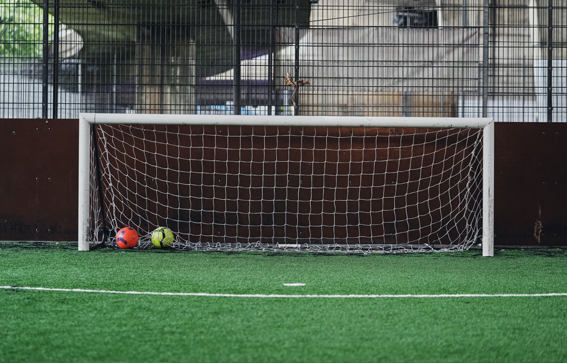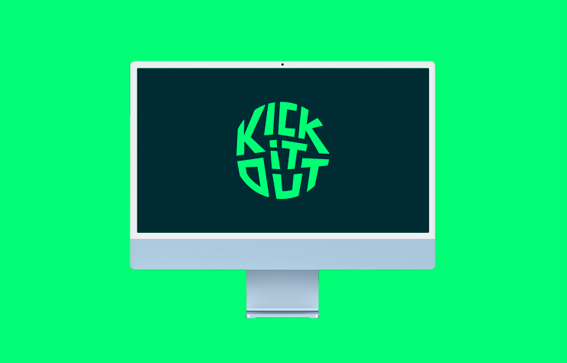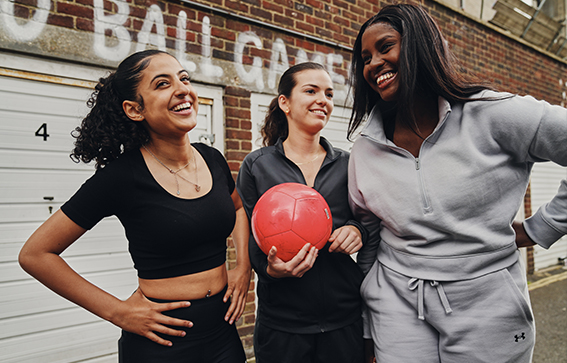I couldn’t have been happier to be beside the seaside on Saturday as Tottenham bagged three points at Bournemouth - although I made sure I was a gracious guest.
I was representing Proud Lilywhites at the invitation of our friends Proud Cherries for the annual Rainbow Laces campaign activation.
The two groups had been designated ‘match champions’ and regardless of the result, there was much to be thankful for as we reflected on the last few years.
The battle against LGBTQ+phobia in British football is far from won but seeing our game unite in appreciation of the diversity across sport, with supportive players, managers and pundits speaking up in greater numbers each year, has become a highlight of the season.
Visibility matters.
Millions of people across the world watch the Premier League and it’s hard to underestimate what seeing the Rainbow Laces activations, a demonstrable expression of allyship to the LGBTQ+ community, can do to break down stigma and taboos.
Here in the UK, hate crime is on the rise - the latest stats from the Home Office show an increase of 41% for sexual orientation hate crime and 56% in trans hate crime.
Meanwhile, just last year, LGBT+ education charity Just Like Us also found that pupils in schools with positive messaging about being LGBTQ+ are less likely to contemplate suicide, whether they’re LGBTQ+ or not.
Seeing so many teams and players supporting Rainbow Laces, ensuring the ‘usualisation’ of the LGBTQ+ community in day-to-day life, can literally be life-saving.
This month, new LGBTQ+ and allies fans groups have been launched at Coventry City, Luton Town, and Barrow, joining around 50 more that are currently active in the Premier League, EFL and other UK leagues, all connected through Pride in Football.
The England and Wales national teams have groups too, in Three Lions Pride and The Rainbow Wall.
But with the 2022 men’s World Cup kicking off soon in Qatar amid the Gulf state’s bleak record on LGBTQ+ human rights - a controversy that sits alongside that of the treatment of migrant workers, women’s rights, and press freedom - the current mood of these groups is not one of celebration but consternation.
With homosexuality criminalised for both men and women in Qatar, those travelling to the tournament who aren’t straight were never likely to feel too comfortable about this particular trip. By extension, nor were their friends and family.
FIFA and the Supreme Committee organisers have offered assurances of safety and security but what has strengthened over time instead is the sense of solidarity between our visible community outside of Qatar and the hidden community who live there.
The Qatari authorities operate strict surveillance of their citizens and due to a lack of transparency, it has been immensely difficult to determine the plight of LGBTQ+ people in the country.
What has had a significant impact, however, has been a recent Human Rights Watch (HRW) report that carried anonymous testimonies from four trans women, a bi woman, and a gay man who all described incidents of discrimination, harassment, arrests, ill-treatment and abuse.
A Qatari government official’s response railed against the report and took specific exception to claims that the trans women had been sent to so-called ‘conversion therapy’ sessions at behavioural centres. The spokesperson accused HRW of releasing information that was “demonstrably false” - although how this would be shown remains unclear.
Meanwhile, a lengthy statement from FIFA mentioned “the enacting of legal provisions allowing for the protection of everyone including LGBTIQ+ individuals” - a hint at an enabling law which Supreme Committee officials have said privately will include the temporary suspension of legislation criminalising same-sex intimacy - but it did not address the HRW allegations directly.
The report has been a major talking point for us at Kick It Out.
A year ago, we formed a Working Group alongside Football v Homophobia, the Football Supporters’ Association, Stonewall, Inside Inclusion and Sports Media LGBT+ to explore issues of LGBTQ+ inclusion related to the tournament.
In recent months, we have been in regular contact with Dr Nasser Mohamed, a Qatari physician based in the US who is gay and has also become an activist for human rights in his homeland since May when he first shared his story with international media.
Dr Mohamed is credited in the HRW report as having provided connections to five of the six interviewees; he says he is in touch with many more.
One of the objectives of our Working Group has been to find ways to use the World Cup “as a platform for the advancement and amplification of LGBTQ+ rights in Qatar”.
Dr Mohamed has generously given his time to suggest constructive ways of amplifying the voices of LGBTQ+ Qataris that reduce the risk of retribution on individuals and avoid taking a Westernised, colonial view of their situation.
Another Working Group objective was to prepare for a “safe and inclusive” World Cup for any LGBTQ+ fans who might go to Qatar.
Football v Homophobia, as part of the LGBTIQ+ Human Rights Sports Coalition, have been seeking such reassurances from FIFA and the Supreme Committee. So have the supporters themselves, who formed a coalition of their own and lobbied extensively for public guarantees.
But clarity has not been forthcoming.
Instead, there appears to be a reliance on the strong reputation for hospitality that Qatar enjoys, and requests for “cultural respect” that skirt around questions of human rights.
Many who have visited the country speak of the warmth of its people, while the rapid acceleration of labour reforms has brought positive change in one of the areas of intense focus.
But there’s no escaping the fact that this is a society built to benefit those with wealth and status.
Qatar has spent over $200 billion to deliver a dream.
Members of its ruling elite and leading Supreme Committee officials have repeatedly said that “everyone is welcome” to visit and experience this spectacular vision for themselves.
Whether LGBTQ+ fans are genuinely included in that invitation remains to be seen - it may become a moot point if only a negligible number make the trip.
The response of LGBTQ+ and allies supporters groups has been to unite under a message of ‘No Pride Without All’ to be shared during the World Cup, with campaign organisers writing in a section titled ‘The Future’: “FIFA must ensure that human rights are properly and effectively considered in its decision making.”
This tallies with our third Working Group objective of “creating an LGBTQ+ voice within sports leadership to inform key decisions around future events” - and on this, we echo the call from ‘No Pride Without All’.
FIFA’s reformed bidding process has introduced human rights requirements that did not exist 12 years ago, when Russia and Qatar were awarded World Cup hosting rights, but early signs have not been encouraging.
Morocco’s bid to host in 2026 was only rated ‘medium risk’ by FIFA for human rights and labour standards, despite homosexuality being illegal there - something that wasn't even mentioned in its bid book.
That is despite FIFA's document on the bidding process stipulating that member associations must provide “an explicit public commitment to respect all internationally recognised human rights in line with the United Nations’ Guiding Principles on Business and Human Rights”.
With Saudi Arabia already said to be lining up a 2030 bid, another match-up that pits money against morality is on the cards.
At Kick It Out, we’re committed to tackling discrimination in sport in all its forms and are fully focused on inclusion.
We know that for LGBTQ+ people in domestic football, our game is by no means perfect - we’re reminded every time we see online hate on social media.
A FIFPro and FIFA study has even shown how the targeted homophobic abuse of male players increases during international tournaments. For obvious reasons, we could witness an even greater spike during Qatar 2022.
The hope around this men’s World Cup has always been that, over time and with guidance from FIFA, Qatari officials might grow in confidence when talking about this area of diversity.
Instead, they continue to present sexual orientation and gender identity as belief systems that are external to their country.
The impression this gives is that LGBTQ+ people are a problem to be endured in pursuit of an ultimate goal, rather than simply fellow fans who wanted to enjoy the football.
So we’ll continue to work for those who are marginalised around this tournament. Because if the invitation that’s been sent out to everybody around the world is genuine, every guest should feel truly appreciated and listened to.
We’re politely requesting that LGBTQ+ Qataris be acknowledged.
We know that they exist and we’ll aim to amplify their voices.
What they’re telling us is that they just wish to feel safer once the World Cup is over.
That’s something for us all to think about, but particularly FIFA and the Supreme Committee.
And to them, I’ll add simply… you’re welcome.
Chris has since launched a petition calling for urgent overhaul at FIFA. Check it out and add your name here.


